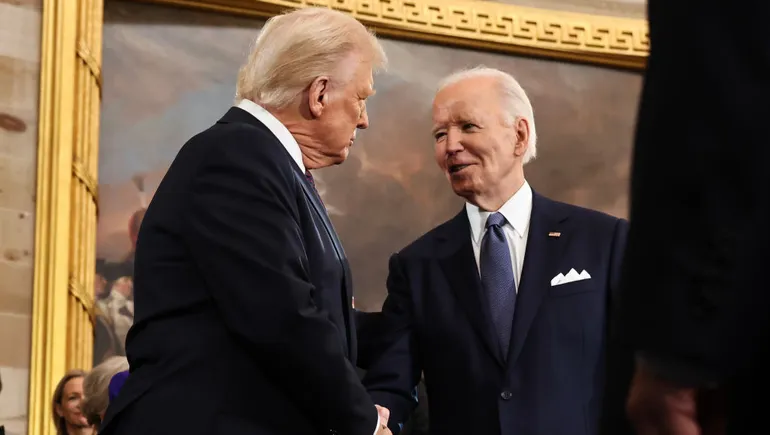Dive Brief:
- By investing $36.5 billion to $43.4 billion in recycling and organics infrastructure by 2030, the U.S. could nearly double its recovery of materials from disposal, according to a U.S. EPA report released during the final days of former President Joe Biden’s administration.
- This includes an estimated $22 billion to $28 billion in spending for curbside collection, drop-off and MRF infrastructure to manage key packaging materials. It also includes an estimated $14 billion to $16 billion in spending for organics collection and processing, including compost and anaerobic digestion facilities.
- The agency projected that the investment could potentially increase the amount of packaging and organic materials recycled by a combined 82 million to 89 million tons. This could increase the national recycling rate from 32% (as of 2018) to 61%.
Dive Insight:
This report’s release stems from an appropriations bill, passed in late 2019, that called on the EPA to develop estimates for what it would take “to provide all citizens with access to recycling services on par with access to disposal.”
The agency chose to focus on packaging and organic materials because they account for an estimated 82% of the MSW stream and are seen as presenting the greatest opportunities. The report’s scope does not include emerging technologies such as chemical recycling for plastics. It also mentions categories such as electronics and textiles as future areas for investment.
EPA’s recycling estimates are now outdated, with the most recent data available covering 2018. The agency estimated about 94 million tons of material was recycled that year, for a rate of 32%. The agency has a nonbinding goal of hitting a 50% rate by 2030, which it said could be surpassed with the level of investment outlined in the report.
The report outlines how investment could help ensure equitable collection access, upgrade and expand processing infrastructure and strengthen domestic end markets for commodities. Its release, along with a companion recycling needs survey and assessment, comes at an uncertain time for future infrastructure investments at the federal level.
The EPA is temporarily in between administrators, as nominee Lee Zeldin awaits required confirmation votes. The executive order President Donald Trump issued this week to pause funding from the Infrastructure Investment and Jobs Act and the Inflation Reduction Act is also raising questions about the effects on recycling projects.
The Biden EPA’s recycling infrastructure report envisioned a mix of private and public sector money to reach its investment targets. While certain private sector companies and investment groups have directed funding to recycling infrastructure in recent years, there is still room to expand, especially for public sector infrastructure.
The report cited multiple infrastructure law-funded grant programs as possible funding sources. These included the Solid Waste Infrastructure for Recycling program and the Recycling Education and Outreach program, which were collectively allotted $350 million through the 2021 infrastructure law. According to a recent report, the agency announced an estimated $200 million in grant awards through those programs during Biden’s term. Another $117 million worth of pending grant opportunities was announced last fall.
While those pending investments may temporarily be in question, observers often note that recycling is a bipartisan issue at the federal level.
For example, the EPA’s 2030 recycling goal originated during the first Trump administration before it was finalized under Biden. There was also bipartisan support to include additional funding for recycling and organics programs in a recent federal budget bill, though that language didn’t make the cut amid pushback from Trump on overall spending levels.
This year will present a new round of opportunities for potential recycling funding or language as Congress prepares to debate budget and tax legislation. The Recycling Partnership, which noted its support for the language that spurred these EPA reports in 2019, is recommending consideration of a recycling infrastructure investment tax credit in those discussions.

